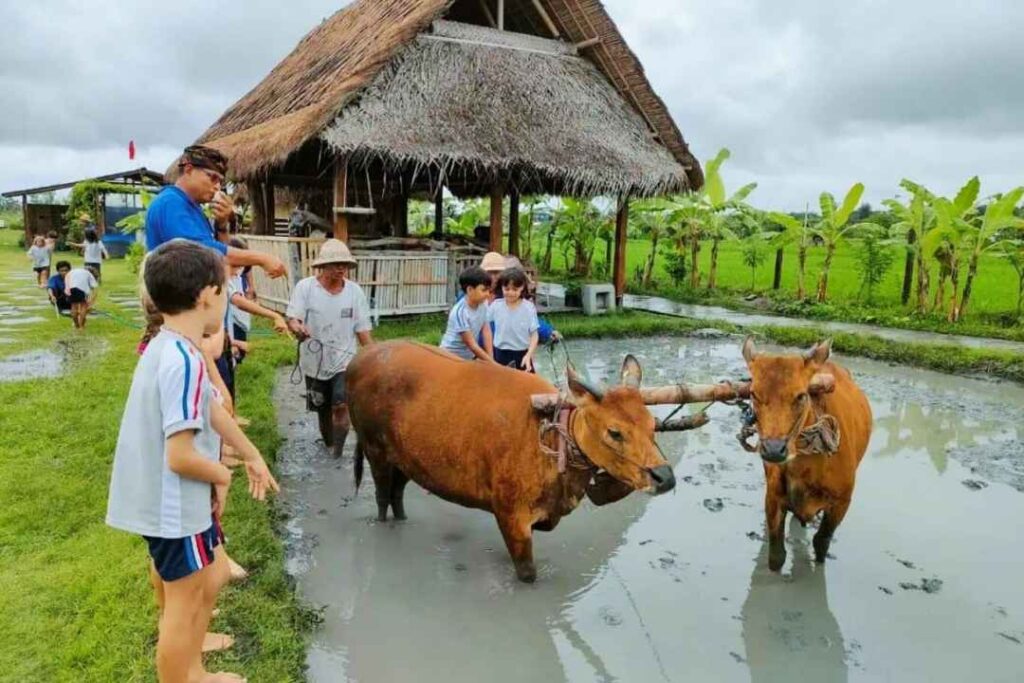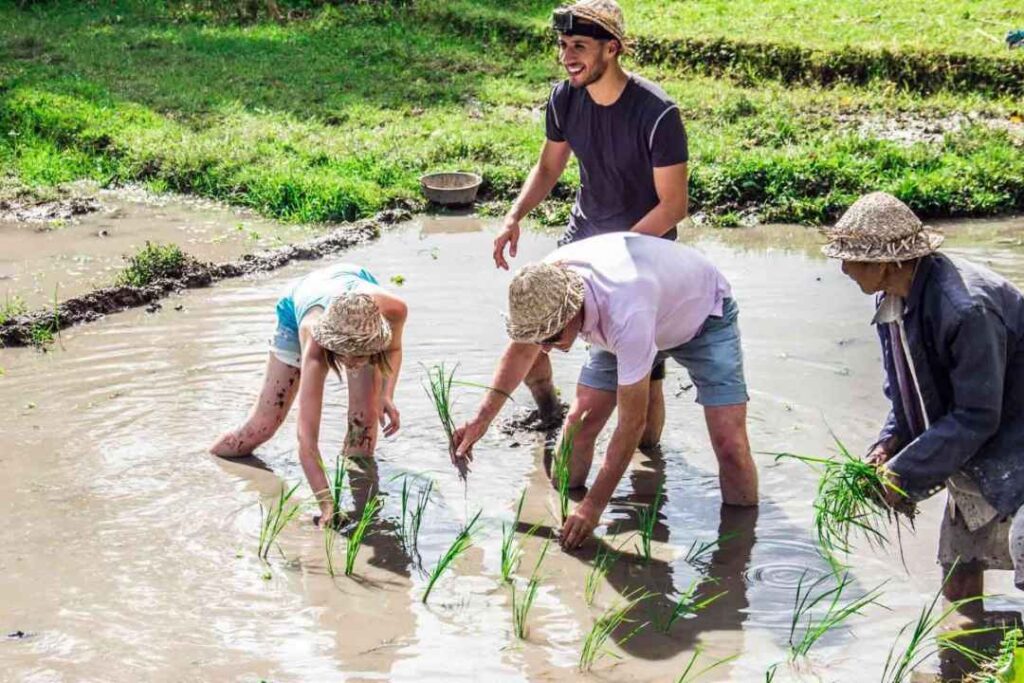Matekap Bali is more than just plowing rice fields. This ancient Balinese farming tradition lives on as a cultural ritual that blends agriculture, spirituality, and community values. While many farmers now use tractors, villages in Gianyar, Tabanan, and Buleleng continue to preserve Matekap. In these regions, visitors can watch farmers guide wooden plows pulled by oxen or buffalo. Their steady, rhythmic steps reflect deep meaning.

What is Matekap? A Living Heritage of Bali
Matekap uses a wooden plow called pengarak and a pair of oxen or buffalo to till rice fields. This simple yet vital tool prepares the soil for planting. Farmers treat the process with great respect. What sets Matekap apart from mechanical farming is not just the method, but the ceremony surrounding it. Further, farmers often carry out Matekap in harmony with nature’s cycles, guided by rituals and prayers.
Unlike modern farming, Matekap feels sacred. In many cases, the ritual starts with offerings and a short ceremony such as nunas tirta (requesting holy water) or nunas panglukatan (cleansing rites). These acts acknowledge the spiritual dimension of the land, recognizing it as a living entity that deserves respect.
Community Spirit and Shared Labor
In Bali, farming relies on community effort. Matekap reflects this through ngayah, a mutual cooperation system. Villagers take turns helping each other—working one field today and another tomorrow. This practice strengthens social ties and keeps the community close.
After a long day in the fields, farmers often share a meal called megibung, sitting together on the field’s edge. These shared meals turn labor into celebration, building unity and pride. For young people, joining or watching Matekap offers valuable lessons about tradition, teamwork, and humility.
Cultural Ceremony and Agricultural Ritual
Matekap goes beyond farming—it marks the shift from rest to renewal. The act of tilling soil prepares not only the land but also the spirit for growth. Moreover, farmers believe proper rituals ensure good harvests and balance between humans and the universe (Tri Hita Karana).
Farmers honor the cows that help them. They decorate the animals with flowers or colorful cloth. These decorations show respect and acknowledge the cows as vital partners in farming. Balinese culture teaches that all creatures share a divine connection.
Matekap Bali as a Unique Group Experience
Today, this cultural farming experience is finding new relevance as part of Bali’s cultural tourism. Villages like Jatiluwih and Tegalalang have begun offering Matekap experiences for visitors. Tourists, especially students or educational groups, are invited to join the farmers, wear traditional attire, and try their hand at guiding the oxen.
These immersive experiences don’t just offer photo opportunities—they give participants a real taste of Balinese farming tradition. Schools often include Matekap as part of educational trips, using the activity to teach values of teamwork, patience, and respect for tradition. It’s also a way to introduce sustainability and the importance of working with nature.
For many visitors, this muddy, grounding activity becomes a highlight of their trip. As they step into the rice fields and feel the earth underfoot, they also step into centuries of Balinese wisdom.

Where to Witness Matekap in Bali
While it’s not held daily, visitors can find Matekap activities or demonstrations in:
- Jatiluwih: Known for its UNESCO-listed rice terraces, this village frequently hosts traditional farming demonstrations.
- Tegalalang: Another scenic area that offers cultural farming tours and interactive agricultural experiences.
- Buleleng and Gianyar: Less touristic areas where Matekap is still practiced by locals during the planting season.
Timing is key. Matekap usually takes place at the beginning of the planting cycle, which varies but often falls around March–April or October–November. Working with local guides or cultural tour operators ensures the best chance to witness or participate in a ceremony.
Final Thoughts
Matekap is not just about farming. It’s a sacred dance that joins people, animals, and the land. This tradition continues because Balinese farmers choose to honor it. Watching or taking part in Matekap lets you feel this connection firsthand—one muddy step at a time.

